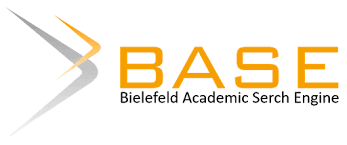THE EFFECT OF OPEN-ENDED LEARNING MODEL ON THE UNDERSTANDING OF CONCEPT BY CONTROLING NUMERICAL TALENT OF STUDENTS
Keywords:
Learning model, Open-Ended, numerical talent, concept understandingAbstract
The purpose of this study was to determine the effect of the Open-Ended learning model on understanding mathematical concepts by controlling students' numerical talents. This research was conducted in class X SMA Negeri 7 Denpasar with quasi-experimental methods with the design of The Non Equivalent Posttest Only Control Group Design, involving a sample of 72 students taken by simple random sampling technique. The independent variable in this study is the learning approach which is divided into two levels of factors, namely the Open-Ended learning model that is imposed on the experimental group and the conventional learning model that is imposed on the control group. As the dependent variable in this research is understanding mathematical concepts. Numerical talent is a control variable (covariable). The research instrument was a test, namely a test of understanding mathematical concepts and numerical aptitude tests. Data analysis used t-test and one-way Anakova. The results showed that: (1) there is an influence of understanding mathematical concepts between students who take the Open-Ended learning model and those who follow conventional learning models, 2) there is an influence of understanding of mathematical concepts between students who take the Open-Ended learning model and those who follow the learning model conventional after numerical talent control. Understanding of mathematical concepts achieved by controlling students' numerical talents, proves that Open-Ended learning models can influence understanding of mathematical concepts themselves.
Downloads
References
Arikunto, Suharsimi. 2016. Fundamentals of Educational Evauation 2. Jakarta: Earth Literacy.
Arini, Anak Agung Ayu Manik and Mahendra, I Wayan Eka. 2016. The Effect of Arias Learning Model and Numerical Talent on Students' Understanding of Mathematical Concepts. EMASAINS Journal. Volume V No 1. Alumni of the Department of Mathematics Education FPMIPA IKIP PGRI Bali. [on line]. Available:
http://ojs.ikippgribali.ac.id/in dex.php/emasains/article/download/12/9/
[October 23, 2018]
Asnila, Zelmi. 2015. The Effect of Application of Problem Based Learning (PBL) Learning Model on the Ability of Understanding Mathematical Concepts of Class X Students of SMAN 3 Tambusai. [on line]. Available: https://Media.Neliti.Com/Me dia/Publications/111150-Id-P affect-Application-Model-Learning-Pr.Pdf. [June 26, 2018]
Candisa, I Made. 2010. Mutivariat Statistics (accompanied by analysis instructions with SPSS). Singaraja: Undiksha. Ganesha University of Education Postgraduate Program Edition 20.
Darmadi, 2011. Educational Research Methods. Bandung: Alfabeta.
Indrawati, Farah. 2012. The Effect of Numerical Ability and How to Learn Against Mathematics Learning Achievement. Formative Journal 3 (3): 215-223 ISSN: 2088-351X. Volume 3 No. 3. Mathematics Education Study Program, Faculty of Engineering, Mathematics and Natural
Sciences,Indraprasta University,
PGRI.[on line]. Available:
http://journal.lppmunindra.ac. id/index.php/Formatif/article/d
ownload/126/122
[May 10, 2018]
Kesumawati, Nila. 2008. Understanding of Mathematical Concepts in Mathematics Learning. [on line]. Available: http://eprints.uny.ac.id/6928/. [May 10, 2018]
Koyan, I W. 2012. Educational Statistics Quantitative Data Analytical techniques. Ganesha Press University of Education.
Krulik, S. & Rudnick, J. A. 1996. The
New Sourcebook for Teaching
Reasoning and Problem Solving in Junior and High School. Boston: Allyn and Bacon.
Ningsih, Yunika Lestaria. 2016. Ability to Understand Student Mathematical Concepts through the Application of
Student Activity Sheets (LAM) Based on Apos Theory on Derivative Material. Edumatica Journal. Volume 06 Number 01. Mathematics Education Study Program, Palembang PGRI University.
Rostina, 2014. Educational Research Statistics. Bandung: Alfabeta.
Satriani, N.L. 2013. The Effect of Duti-Ambassador's Cooperative Learning Model Against
Mathematics Learning Achievement with Covariable Numerical Ability in Class IX Students. [on line]. Available:
Shimada, S & Becker, P. 1997. The Open-Ended Approach: A New Proposal for Teacing Mathematics. NY: NCTM
Sudiarta, I. G. P. 2005. Development of Open Ended Problem Solving-Oriented Mathematics Learning Model, Journal of Education and Teaching IKIP Negeri Singaraja, October 2005 Edition.
Sukendra, I Komang. 2014. The Effect of Application of Open Mathematical Problem-Oriented Problem Solving Learning Model on Mathematics Learning Achievement Judging from the Critical Thinking Ability of Class X Students of SMA N 7 Denpasar Academic Year 2013/2014. Journal of the Mathematics Education Department of Ganesha 2014
Sulistyowati, Dewi Anggraeni. 2013. The Relationship Between Numerical Talent and Mathematics Learning Achievement. [on line]. Available: http://eprints.ums.ac.id/27172/21/NASKAH_PUBLIKASI.pdf. [May 23, 2018]
Utomo, Juni Setyo. 2016. Analysis of
the Ability to Understand Mathematical Concepts. [on
line].Available:
Widana, I Wayan, et al. (2018). Higher Order Thinking Skills
Assessment towards Critical Thinking on Mathematics Lesson, International Journal of Social Science and Humanities. http://sciencescholar.us/journ
al/index.php/ijssh, Vol. 2, No. 1, April 2018. e-ISSN: 2550-
Downloads
Published
How to Cite
Issue
Section
License
Copyright (c) 2022 LP3M Universitas PGRI Mahadewa Indonesia

This work is licensed under a Creative Commons Attribution-NonCommercial-ShareAlike 4.0 International License.
Hak cipta mencakup hak eksklusif untuk mereproduksi dan mengirimkan artikel ini dalam semua bentuk dan media, termasuk mencetak ulang, memotret, mikrofilm dan reproduksi serupa lainnya, serta terjemahannya. Reproduksi dari bagian manapun dari jurnal ini, penyimpanannya di database dan transmisinya dengan bentuk atau media apa pun, seperti salinan elektronik, elektrostatik dan mekanis, fotokopi, rekaman, media magnetik, dan lain-lain, akan diizinkan hanya dengan izin tertulis dari penerbit jurnal.







1_(1).jpg)











